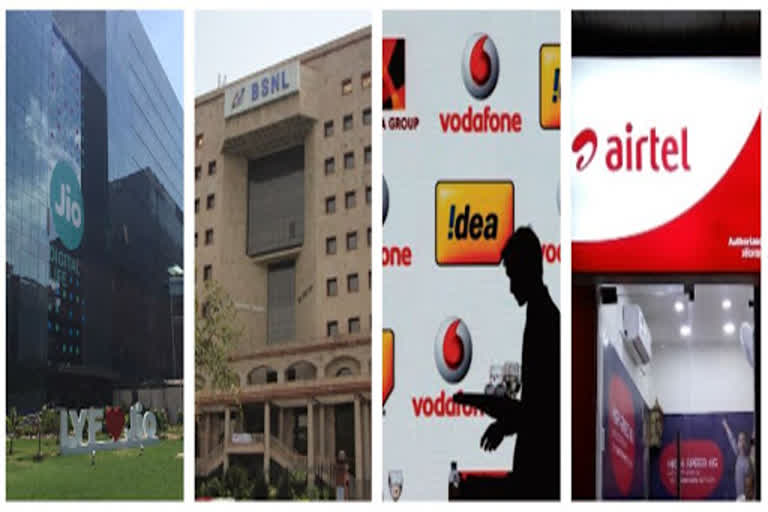New Delhi: Industry body COAI, whose members include Bharti Airtel, Vodafone Idea and Reliance Jio, on Wednesday said various steps including a two-year moratorium for spectrum dues to telcos will provide relief to the debt-laden sector.
Cellular Operators Association of India (COAI) DG Rajan Mathews said that proposed tariff hikes in mobile call and data rates will partially help in reducing the stress.
"The combination of three things 2-year moratorium for spectrum payments, proposal to increase in tariff and modifying adjusted gross revenue will help resurrect the telecom sector," Mathews said.
The cabinet has approved a two-year moratorium for spectrum payment. However, the deferred payment will be adjusted in balance annual instalments to be paid by the service providers for the spectrum they purchased through auctions.
Telecom players including Airtel and Vodafone Idea had sought some relief from the telecom sector.
This includes a request to not press for the AGR liability payment and grant waivers, not levying spectrum usage charges (SUC) on non-licenced revenue, reduction of the licence fee and SUC rates and use of GST credit for payment of government levies.
Last week, India's two leading telecom operators Vodafone Idea and Bharti Airtel reported a combined loss of Rs 74,000 crore for the second quarter ended September 2019, mainly on account of statutory dues arising from the recent Supreme Court order on AGR.
The apex court has upheld the government's position on including revenue from non-telecommunication businesses in calculating the annual AGR of telecom companies, a share of which has to be paid as licence and spectrum fee to the exchequer. The ruling over statutory liabilities has triggered a rush for provisioning by telecom companies.
While Vodafone Idea posted a loss of Rs 50,921 crore the highest-ever quarterly loss by any corporate in India -- Airtel reported a loss of Rs 23,045 crore.
On Friday, Reliance Communication posted a consolidated loss of Rs 30,142 crore for July-September 2019 due to provisioning for liabilities after the Supreme Court ruling on statutory dues marking the second-highest loss posted by any Indian corporate to date.
Mathews said that as per legal opinion was given by legal stalwarts that DoT is well within its right to modify the definition of AGR prospectively.
"The AGR judgement of the Supreme Court has added debt burden on another Rs 2 lakh crore on the telecom sector. If the government removes AGR prospectively, as we pay for entire spectrum in the auction, or modifies it as per TDSAT judgement, it will resolve telecom sector issues," Mathews said.
The telecom tribunal TDSAT had ruled that government can levy licence fees, spectrum usage charges etc only on revenues earned through the sale of pure telecom services.
He said the telcos pay up to 30 per cent of their revenues to the government, by way of various levies and taxes, which is an enormous burden on the industry. "30 per cent of what is collected is passed on to the Government. We have been requesting the Government that these levies and Taxes be rationalised and the same is also one of the important goals of NDCP. However, these aspects of the NDCP are yet to be operationalised and we are engaging with the government on the same," Mathews said.
Mathews said that the 2-year moratorium will not reduce debt on the telecom sector as the government will charge interest on the deferred payments.
"It will help the industry if the government aligns interest with the prime lending rate or floating method instead of a fixed rate of 9.5 per cent. The interest rates have been coming down," Mathews said.
He said that the debt on telecom service providers at present is close to Rs 6 lakh crore and telecom operators will need to increase their average revenue per user by at least 20 per cent for partial relief.
All three telecom operators - Reliance Jio, Bharti Airtel and Vodafone Idea have announced they will increase mobile service rates.
The government's decision to grant a two-year moratorium on spectrum payments to telecom companies will provide near-term cash flow relief, especially to Vodafone Idea, but the move by itself may not be enough to address leverage concerns of the troubled telcos, leading analysts said.
"We await clarity on whether this is the extent of relief that the government is willing to offer or whether there could be more measures forthcoming," Citi said in its latest report.
Read more: Cabinet approves Industrial Relations Code Bill, 2019



